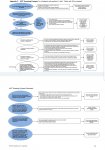@lilpink thanks for this.
Yes, it isn't clear from the FOI exactly what purpose of recording Bristol is referring to is it.
Term 'provisional diagnosis' has been superceded by 'problem descriptor' at least as far as the data set is concerned. In 'Psychological Therapies: Annual Report on the use of IAPT services - England' (2015-16), the term 'IAPT-relevant problem' is repeatedly used:
"
NICE recommend that particular therapies are given to treat specific IAPT-relevant problems (also known as ‘problem descriptor’ in the data)."
PDF:
https://files.digital.nhs.uk/pdf/1/0/psyc-ther-ann-rep-2015-16_v2.pdf
___
From 'Psychological Therapies: Annual report on the use of IAPT services England, further analyses' (2016-17):
"
Problem descriptor
"This describes the specific problem being assessed by the IAPT service for a given referral (for example, Obsessive Compulsive Disorder). The terminology was changed from ‘provisional diagnosis’ as it was felt that a formal diagnosis cannot always be made at initial contact with a patient and that this sometimes only becomes apparent over the course of several appointments. For this reason, the problem descriptor can be updated in each submission. In the analysis of outcomes, the problem descriptor used is the last recorded one."
https://digital.nhs.uk/data-and-inf...-services-england-further-analyses-on-2016-17
___
From the draft IAPT Manual (2017). The IAPT Manual is awaiting publication:
https://www.rcpsych.ac.uk/workinpsy...arepathways/improvingaccess.aspx?theme=mobile
"5.1.3 Establishing the appropriate problem descriptor
"NICE guidance is based on the ICD-10. Different psychological treatment approaches are
recommended for different types of problem as delineated in the ICD-10 framework. For this reason, it is essential that assessors identify and record a problem descriptor for the main problem that the clinician and patient have agreed they would like to work on. It is recognised that patients may have multiple problems. The IAPT MDS [minimum data set] has several problem descriptor fields that can be used in such instances, it is essential that the clinician identifies the ICD-10 code that characterises the leading problem. If this is not achieved, the person may be offered the incorrect treatment and the most appropriate outcome measures may not be
used. This will hamper the clinician’s attempt to help the person overcome their problems."
Regarding defining problem descriptor:
p. 47
: "... assessors in IAPT services are encouraged to work with patients to describe accurately the problems that they would like their treatment to focus on and to give these the appropriate problem descriptor. Identification of the appropriate problem descriptor varies across services, but those with higher rates of problem descriptor identification achieve better outcomes."
Appendix C to the 2011 IAPT Handbook v. 2. 0.1 contains an algorithm for identifying descriptors which I've attached below for ease of reference. This does not contain MUS descriptors.
The 2013/14 'Psychological Therapies, Annual Report on the use of IAPT services' mildly reproved lack of provisional diagnosis reporting:
"In 2013/14 provisional diagnosis was recorded for 46% (513,346) of new referrals received by IAPT services. It is to be expected that some referrals may not have had a diagnosis at the point of referral as the service user may not have seen a therapist at this point. Recently we undertook a consultation exercise[8], on IAPT reporting, which included a question on the reasons for a lack of completion of the provisional diagnosis field. A common reason reported was that clinicians may not feel adequately trained or qualified to provide a diagnosis."
"Referrals with a provisional diagnosis of any type recorded had a combined recovery rate of 46% (95,583 referrals); this was higher than for referrals without a provisional diagnosis recorded, which had a recovery rate of 43% (48,250 referrals)"
From the above, I arrive at:
1. Not all IAPT service providers have historically identifed problem descriptors for patients who are to undergo a course of treatment;
2. Where problem descriptors are identified, this is for the purpose of informing clinical direction and identifying appropriate NICE guideline(s) for the IAPT course of treatment and appropriate outcome measures, and for national pseudonymised reporting. Problem descriptors may or may not be informed by referral diagnosis;
3. IAPT services are enjoined to identify the ICD-10 code that corresponds with the problem descriptor lit upon, for NICE guideline and outcome measure identification, and pseudonymised national reporting purposes;
4. ICD-10 coding may or may not affect coding/terms on patient Electronic Health Records:
I haven't encountered any document (to date) that explicitly indicates ICD-10 equivalent coding or clinical terms should or will be entered onto patient Electronic Health Records as a direct result of undergoing referral to IAPT services. This isn't to say that this may not occur as preamble to or other result of referral, such as correspondence or case conferencing with primary care physician. Variability across providers and that an increasing number of IAPT services are co-located in primary care settings add additional variables.
Talking Sense on confidentiality:
http://www.talkingsense.org/about-us/confidentiality/
I recommend this thread initiated by a PWP candidate on 'diagnosing':
http://www.clinpsy.org.uk/forum/viewtopic.php?f=27&t=14240
___
Re 'provisional diagnosis' and its successor terms, it's also worth noting that the BPS 'Guidelines on the use of Electronic Health Records' (Oct 2011) (see
@lilpink previous post ) in reference to concerns over competence in diagnosing, states:
"The issue of entering psychiatric diagnosis in a record is sometimes dealt with by ‘workarounds’, such as requiring the non-psychiatrist to enter an ‘interim’ or otherwise tentative diagnosis. It is the view of the Society that while such workarounds may satisfy Trust requirements, they do not avoid the issue of competence to make such diagnoses and are counterproductive because they constitute a ‘solution’ that is illusory. In some mental health services registered psychologists provide provisional diagnosis based on relevant ICD-10 coding. Provisional diagnoses record patterns of symptoms and do not replace the client-centred assessment required to formulate a treatment plan."
The last sentence is found near verbatim in the earlier publication IAPT Data Handbook v. 2 (June 2011).
ETA: Attachment Appendix C to IAPT Handbook v. 2.0.1 (2011)

